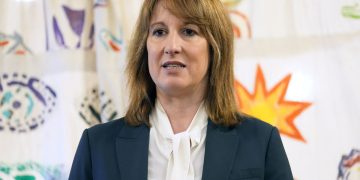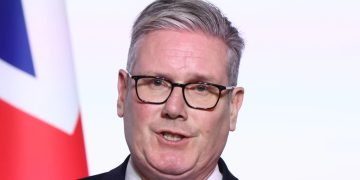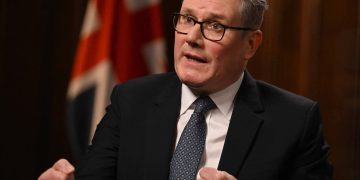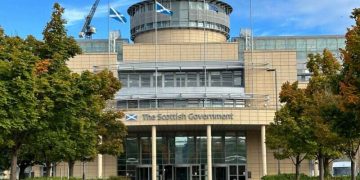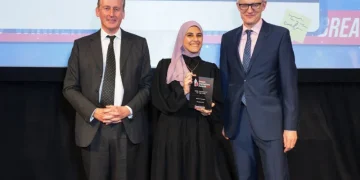
Ofcom has decided not to change its rules setting out when broadcasters can employ politicians as presenters following concerns from broadcasters that its plan would result in a “de facto ban”.
However Ofcom has added updated guidance alongside the Broadcasting Code to make clearer the circumstances in which politicians can present news programmes.
Ofcom consulted on changing the Broadcasting Code after two decisions it had made against GB News were quashed by a High Court judge. It also rescinded three other decisions and discontinued five other investigations.
Ofcom had previously said the use of Conservative MPs such as Jacob Rees-Mogg, Esther McVey and Philip Davies to read out news updates while presenting current affairs programmes on GB News had breached due impartiality rules.
However a judge found Rees-Mogg’s programme had been “instantly and intuitively recognisable as a current affairs programme” while Ofcom’s ban on using politicians as newsreaders only applied to news programming. Ofcom agreed there was no issue of partiality in the actual content.
Rule 5.3 of the Broadcasting Code states: “No politician may be used as a newsreader, interviewer or reporter in any news programmes unless, exceptionally, it is editorially justified. In that case, the political allegiance of that person must be made clear to the audience.”
Ofcom has repeatedly said politicians can present programmes defined as current affairs.
Ofcom had considered changing the Code so it stated that politicians could not be used as “a newsreader, news interviewer or news reporter in any type of programmes…”
However broadcasters opposed this, saying it would make it difficult to make sure they were working within the rules.
Ofcom said there was a “high level of consensus amongst broadcasters in favour of retaining the wording of Rule 5.3. Many respondents were concerned that amending Rule 5.3 would introduce significant practical challenges and operational uncertainty for broadcasters, and that it would inadvertently result in a de facto ban on politicians presenting any kind of programmes.”
GB News argued in its response: “The proposed change would prevent a politician from reading an announcement that a public figure has died or a natural catastrophe has occurred abroad.
“There is no reason why the fact that a politician who is a member of a UK political party should necessarily affect the impartiality of such an announcement and render it inherently partial or have any impact on the integrity of broadcast news generally.”
The broadcaster described the effect of Ofcom’s proposed change as “to create a sharp ‘cliff edge’ position which would put the broadcaster in breach of the rules if any item of current affairs was deemed to be news.
“Broadcasters will need to take steps to guard against these; such steps would mean an increased regulatory burden on broadcasters who, perfectly legitimately, use politicians as presenters.”
ITN, the producer of ITV News, Channel 4 News and 5 News, said it supported Ofcom’s intent and the principle behind strengthening the Broadcasting Code but that there need to be more clarity on what would and wouldn’t be covered.
It cited its Channel 5 current affairs programmes such as Jeremy Vine, and its upcoming takeover of production for Good Morning Britain on ITV , saying current or former politicians “often contribute at length on such programmes”.
It said “adding in additional layers of regulation in the current media climate would be an unintended consequence in limiting current and future programme innovation for consumers” and added that they did not back a system in which the test is “you know it when you see it”.
“This test may apply to a traditional entire news programme, but not in news references within other genres of programming. We would prefer a tight definition of ‘news’ so there is little room for doubt.”
News Broadcasting, which operates Times Radio and Talk, argued that using politicians to present radio and TV programmes “has public value when it is done responsibly” as it allows a “two-way conversation” and “can help to make political issues and democratic processes more visible and engaging”.
It said Ofcom’s proposed change posed a “myriad of implementation challenges and risks significantly curtailing our ability to engage politicians as presenters in future.
“In our view, it would represent an unnecessary and disproportionate interference with the right to freedom of expression in the field of political speech and on matters of public interest.”
The broadcaster went on: “A core issue is that ‘news’ – as it appears in the terms ‘newsreader, news interviewer or news reporter’ – is not definable. A very broad range of revelations, updates and disclosures which occur during a live broadcast could reasonably be considered, with hindsight, to be ‘news’.
“Looking across our range of stations, calling out score updates on Talksport could be ‘news’ for the audience, and presenting a weather, stock market or travel update on Talk or Times Radio could also be considered ‘news’. Likewise (and a similar example was cited during the GB News judicial review) announcing the death of a musician or a band’s new tour during a culture show or on a music radio station like Virgin Radio UK is likely to be ‘news’…
“Under the current rules, production teams can take a fact-sensitive approach but, under Ofcom’s proposed amendment, this role cannot be done by a ‘politician’ in any programme whether or not there is a risk to due impartiality.”
Ofcom issues new guidance on politicians acting as news presenters
Instead of changing the Broadcasting Code, Ofcom has issued new guidance in an attempt to clarify what is allowed.
It now makes explicit that if an MP presented news in a non-news programme, their status as an MP would likely be a relevant factor in considering whether that news was presented with due impartiality with factors like the nature and subject of the news and their political position on that issue being taken into account.
Ofcom also now defines the “exceptional circumstances” in which a politician could deliver a news update as those that “cannot be controlled or foreseen by the broadcaster”, making clear that this would be rare and there should be contingency arrangements in place to avoid them.
Ofcom has now also updated the definition of who counts as a politician under these rules, adding a reference to members of the House of Lords and “representatives” of political parties and taking out “activists”.
Cristina Nicolotti Squires, Group Director for Broadcasting said: “We’ve listened carefully to the perspectives of audiences, broadcasters and other experts through our consultation.
“Our updated guidance provides the right protection for audiences, while also safeguarding freedom of expression and broadcasters’ editorial discretion to choose their presenting line up.”
The post Ofcom backs away from change to rule over politicians acting as presenters appeared first on Press Gazette.

